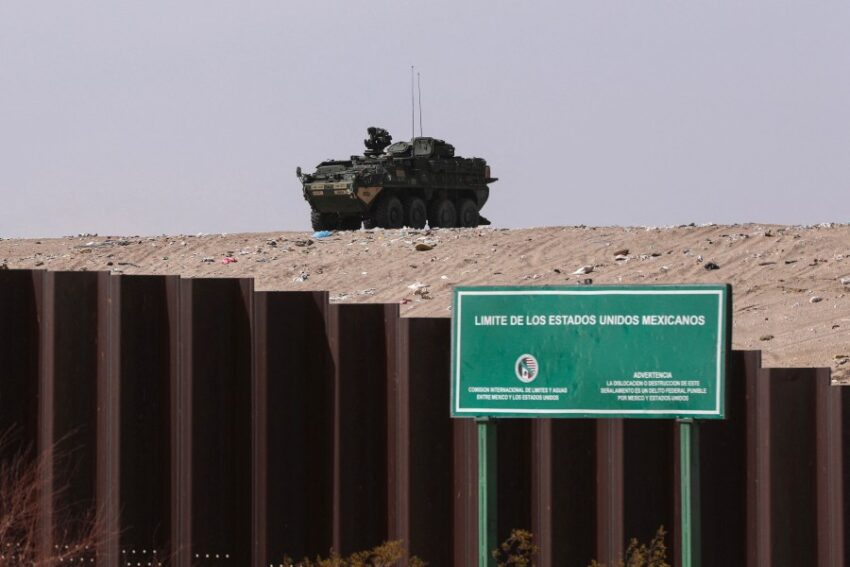EL PASO, Texas (Border Report) – Community activists are launching a public engagement campaign to counter what they perceive as the growing “militarization” of the Texas-Mexico border.
It includes a two-week span of marches and community meetings called “Journeys of Resistance” in El Paso, Laredo, San Antonio, Houston, Dallas and Austin from May 3-17. A database to document abuse and demand accountability from government agencies also is in development.
The so-called Texas Community Resiliency Agenda campaign comes after the deployment of thousands of active-duty troops to the border and a Trump administration push for local governments to cooperate with federal immigration authorities. The activists allege this is sowing fear among families of mixed immigration status and painting a distorted picture of the region.
“It’s not only enough to have police departments and the state police, now we’re seeing an expansive militarization of our communities,” said Fernando Garcia, executive director of Border Network for Human Rights. “It’s not only weapons. It’s not only uniforms and tanks like we have seen arriving in El Paso in the last weeks. It’s the mentality that people of color are the enemy, that immigrants are an invasion…”


Organizers like Lupita Sanchez of Border Workers United in Weslaco, Texas, agree that the show of force by the Trump administration is forcing deeper into the shadows families that already lived on the fringes of society. Their goal is to let them know they have rights under the Constitution regardless of immigration status.
She said adults no longer feel comfortable walking their children to school and some have cut down on activities outside the home, including essential grocery shopping for fear of running into immigration agents. If they witness or become victims of a crime, the activists are concerned the residents will shy away from reporting it.
“Law enforcement cannot function effectively without the trust of the people they serve,” Sanchez said. “When communities are informed and not afraid, they are more likely to support law enforcement efforts.”
Trump in January declared an emergency at the southern border due to the historic high volume of illegal border crossings of the past four years. The numbers already were declining after President Joe Biden restricted asylum avenues to a single online appointment system called CBP One app a few months before the November general election.
Trump ended the use of CBP One for asylum purposes, deployed troops and military equipment to the border with Mexico and threatened that country with tariffs if it didn’t do more to slow the flow of migrants and fentanyl to the United States.
Illegal border crossings fell to historic lows in March, according to U.S. Customs and Border Protection.
 Read: Read More
Read: Read More




